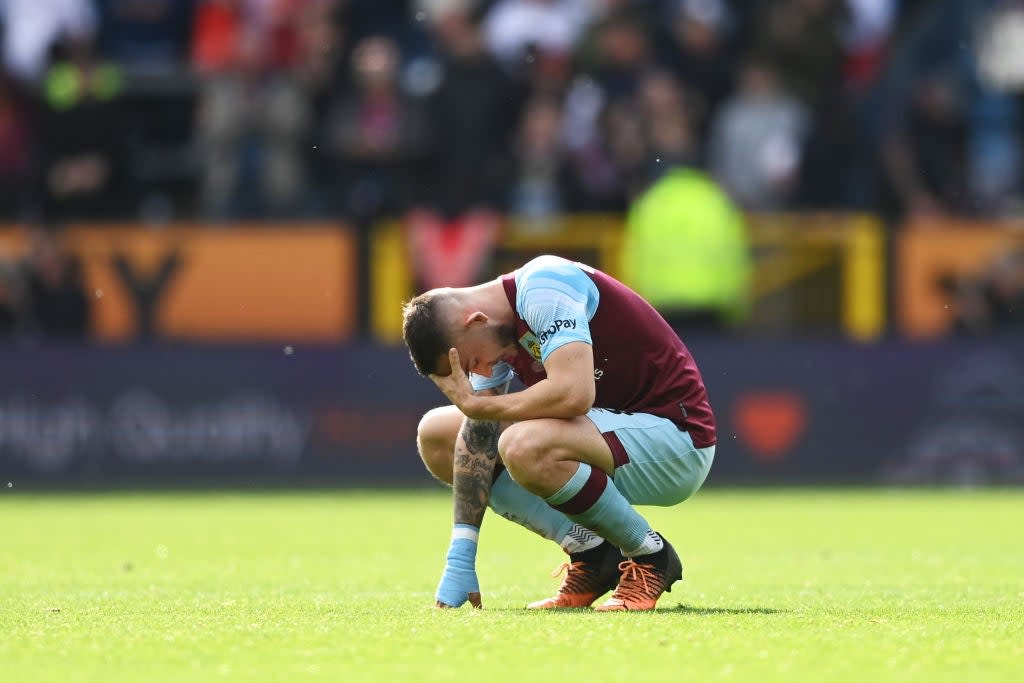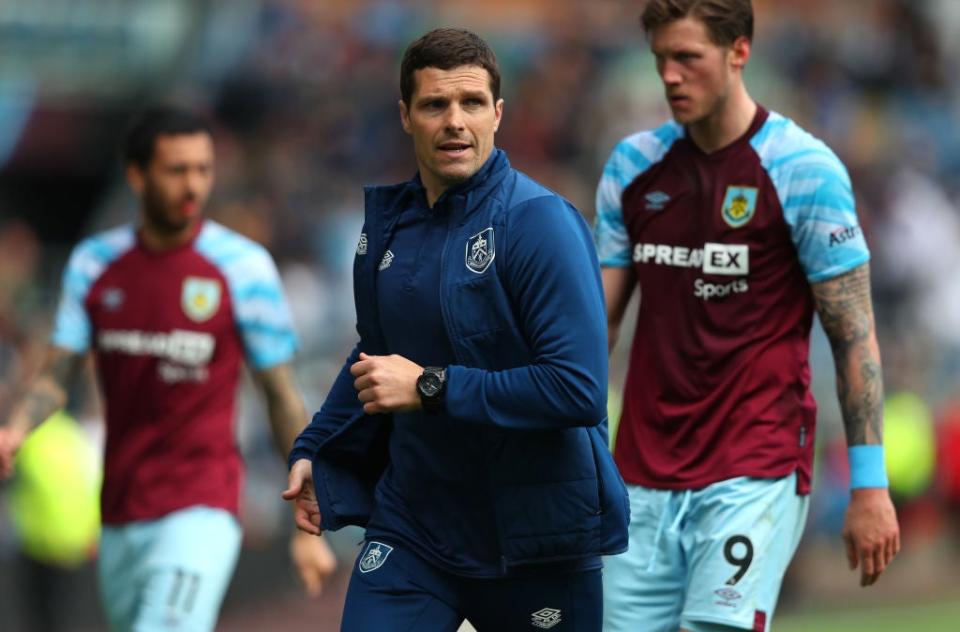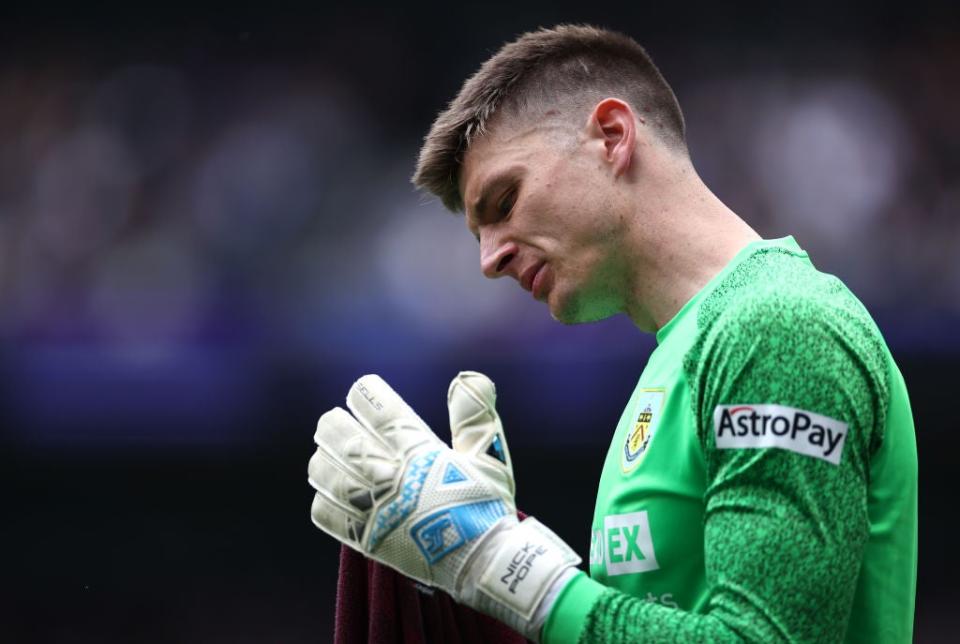Peril of relegation sharpens reality of Burnley’s survival fight

The calculations are relatively straightforward for Burnley, in one respect at least. A win away at Aston Villa tonight would be a major step towards avoiding relegation. A draw would lift Mike Jackson’s side above the dotted line and leave it all to play for on the final day. But a defeat would leave them relying on a favour to retain the top-flight status that they cannot afford to lose.
In that worst case scenario – relegation to the Championship and the end of their six-year stay in the Premier League – things become more complicated. Burnley’s first set of accounts since ALK Capital’s controversial takeover were published earlier this month and revealed what many feared could be a consequence of the £170m leveraged buyout.
As the accounts show, ALK’s takeover loaded £102m worth of debt onto a previously debt-free club and reduced healthy cash reserves of £81m down to £50m. More immediately concerning, though, was confirmation that ALK’s purchase was partly financed by a £65m loan from MSD Holdings, a private investment firm who have also lent money to Southampton, Sunderland and Derby County in recent years.
If Burnley remain in the Premier League this season and over those that follow, they will only pay an interest rate of 8 per cent on the loan until December 2025. If they are relegated, however, the repayment schedule will be brought forward and a “significant proportion” of the £65m will be due at the end of this season. Another repayment will need to be made at the end of next season unless they return to the top flight at the first attempt.
For a club whose turnover sits at £115m – the lowest of any in the Premier League – that has to be concerning. Alan Pace, Burnley’s chairman, has repeatedly reassured supporters that plans are in place in the event of relegation. The club will “continue to have the support of its lenders”, the accounts say, and “reserves are sufficient to enable a significant proportion of the balance to be settled by way of dividends if required.”
If the worst comes to the worst and relegation is confirmed this week, there are two ways Burnley’s directors intend to absorb the financial hit: by slashing the £86m-per-year wage bill through pre-existing contract clauses and selling players in the summer transfer market. If the club’s financial position is still worse than anticipated, “further player trading” would be required. This is described in the accounts – not inaccurately – as “common” for clubs relegated from the Premier League.

What is less common is for a relegated club to lose several important players for nothing, though. The contracts of nine members of the first team squad – including stalwarts like captain Ben Mee, James Tarkowski, Ashley Barnes and Jack Cork – are all due to expire this summer. If renewals are not agreed, their departures will at least trim the wage bill down to a level more typical of a Championship club, but an opportunity to earn fees for their years of service will be lost.
Meanwhile, some of the squad’s more valuable assets risk being sold below their going market rate. Nick Pope would have plenty of potential suitors as a proven top-flight goalkeeper but has just a year remaining on his current deal, albeit with a 12-month extension clause able to be triggered by the club. Maxwel Cornet has been one of Burnley's few bright sparks this season, scoring eight times, but reports emerged this week of a £17.5m relegation release clause in his deal. That would represent a profit on his £13m signing from Lyon last summer but some way short of the value they might otherwise command.
Burnley are not short of saleable assets. Dwight McNeil would command top-flight interest despite an underwhelming season on the pitch. Wout Weghorst – the £12m January replacement for Chris Wood – has resale value despite struggling for goals since his arrival. Nathan Collins is a talented young centre-back but one that the next permanent manager at Turf Moor would want to keep around as part of a rebuild, focused on an immediate Premier League return.

How realistic would an immediate return be, though, given this squad rebuild and the wider financial hit to the club? The Premier League’s broadcasting revenues have been Burnley’s largest stream of income by far over the years, outstripping matchday and commercial takings. They can expect to retain 55 per cent of those broadcasting revenues in the form of parachute payments if relegated to the Championship, but the prospect of some of that being spent on a sudden, substantial loan repayment is real.
The stakes could hardly be higher for this trip to Villa Park, which will be Burnley’s second league meeting with Steven Gerrard’s side in the space of a fortnight. The first – a 3-1 loss at Turf Moor – brought Jackson’s honeymoon period as caretaker manager to an abrupt end and was followed by a spirited but merited defeat away to Tottenham at the weekend. After taking 10 points from a possible 12 to reinvigorate their survival bid, Burnley appear to be losing momentum at exactly the wrong time.
Even so, the managerial change has been positive. Though he undoubtedly worked wonders during his decade at Turf Moor, Sean Dyche is said to have lost support among the dressing room by the time of his departure. The prospect of swallowing relegation and then bouncing straight back under his management, as happened in 2016, was thought to be remote. There remains the issue of his pay-off, which will be significant, having only signed a new four-year contract last September.
However costly it proves, dispensing with Dyche was a gamble that Pace and the directors felt they had to take to salvage Burnley’s season. Given the perilous position they were in at the time of his departure last month and the upturn in results that immediately followed under Jackson, it appears to have paid off. Even if Burnley go down, difficult decisions taken by the ownership over the past couple of months have given them a chance of staying up.
Yet if they cannot take that chance either at Villa Park tonight or against Newcastle United at Turf Moor on Sunday, the future is far from certain. But again, their task this week is simple: four points from their final two games will effectively guarantee safety. One point will be enough if Leeds lose to Brentford on the final day. Should Burnley lose both of their remaining games though, they will go down, and their way back to the riches of the Premier League will look incredibly complicated.

